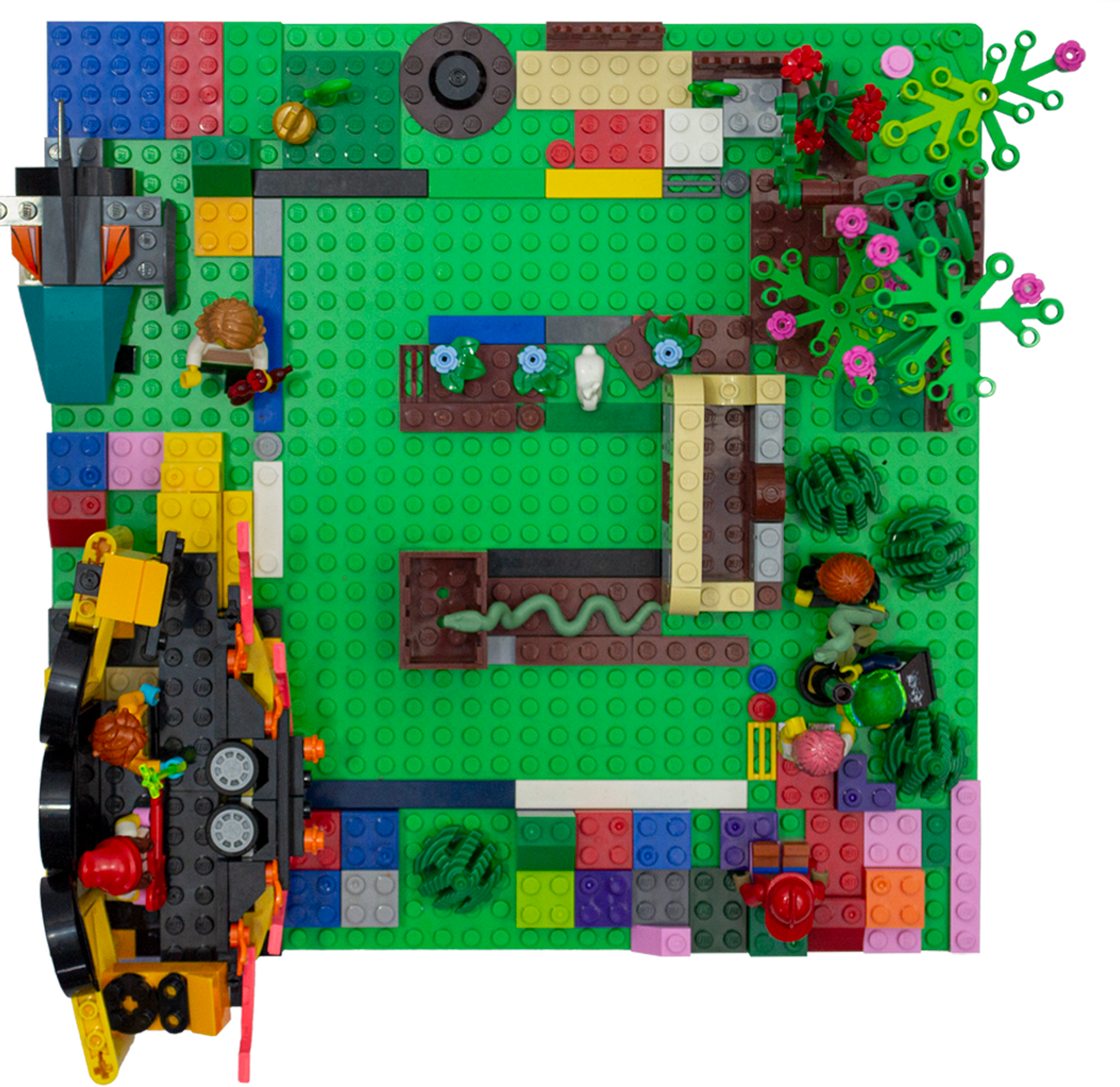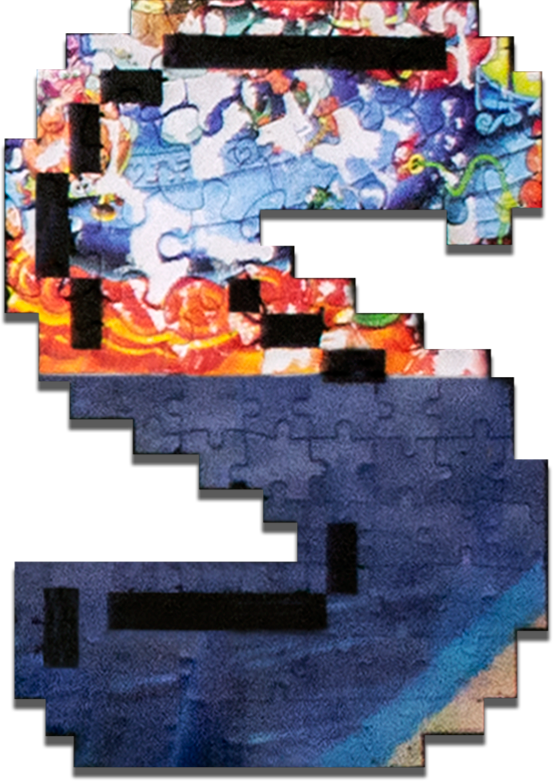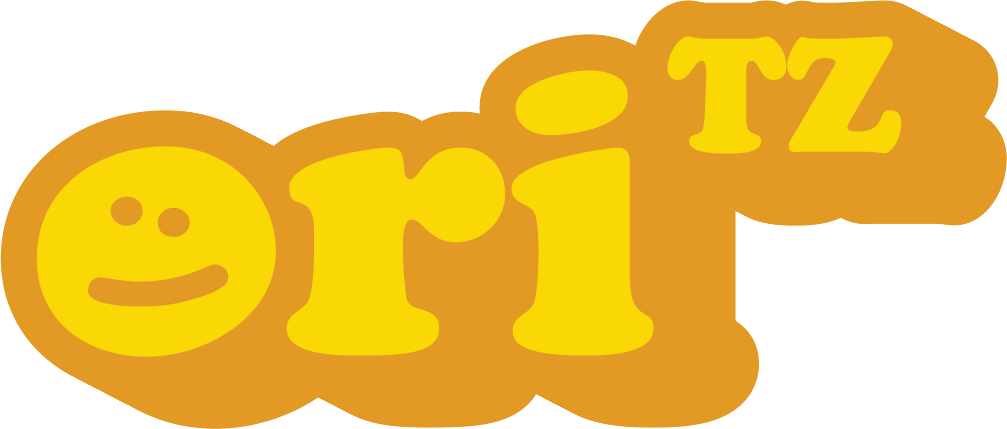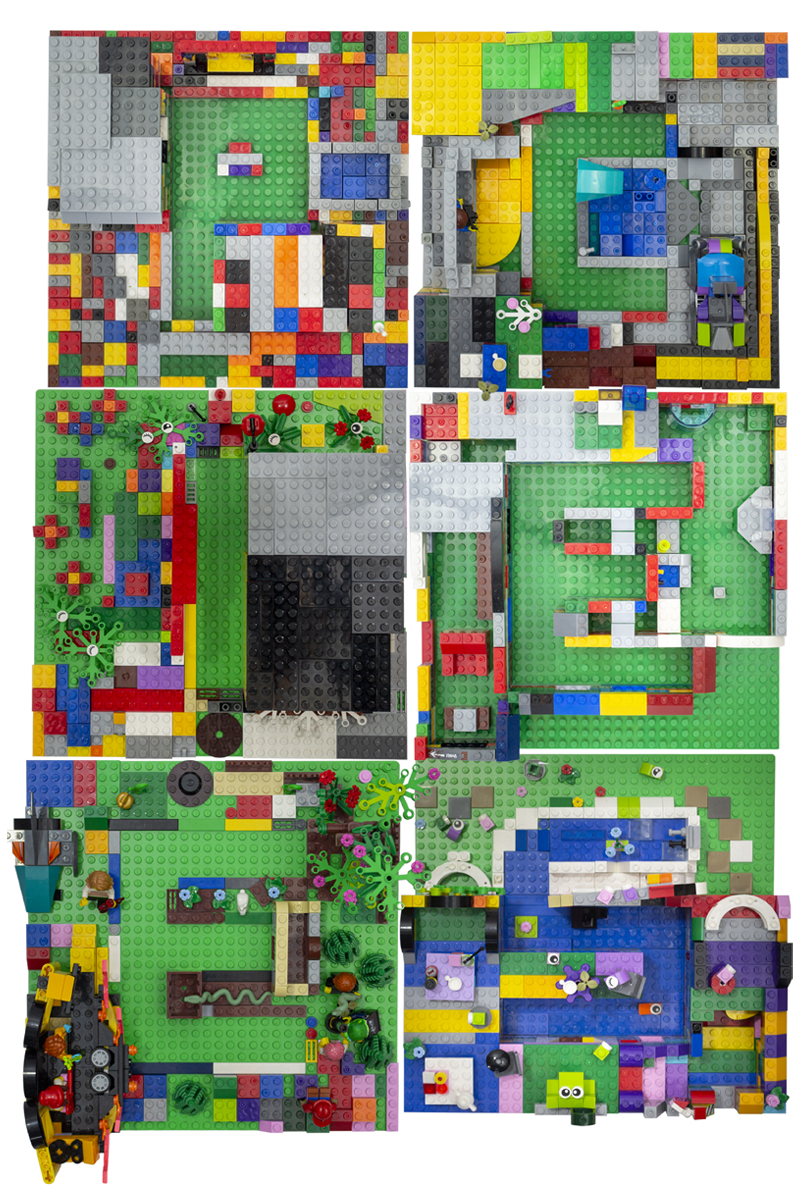

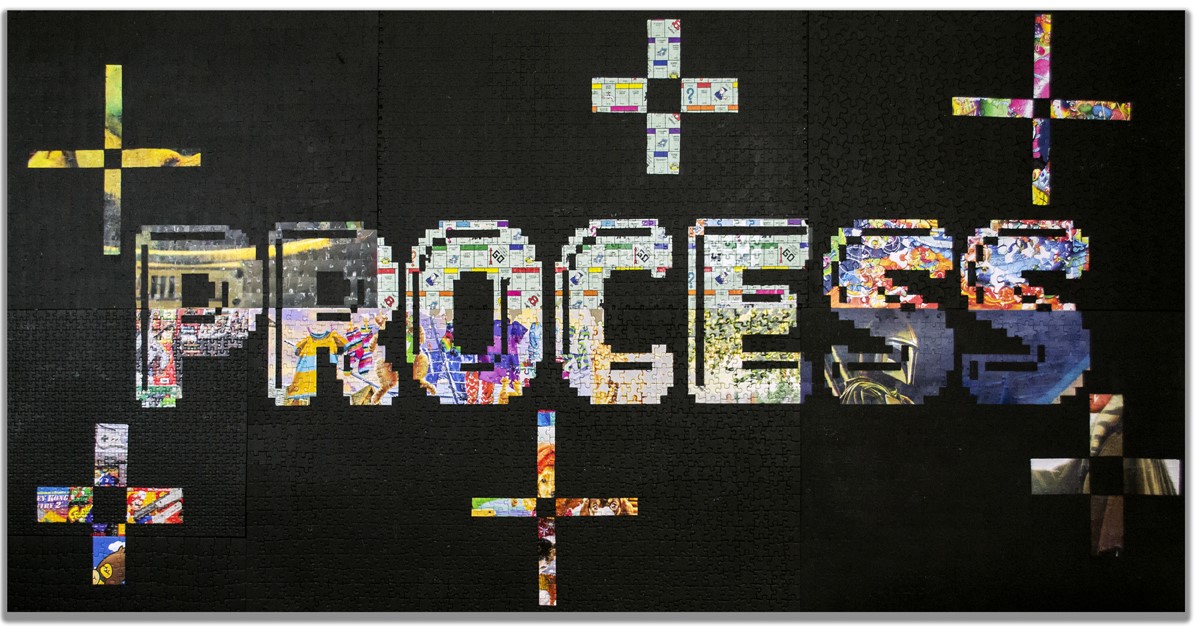
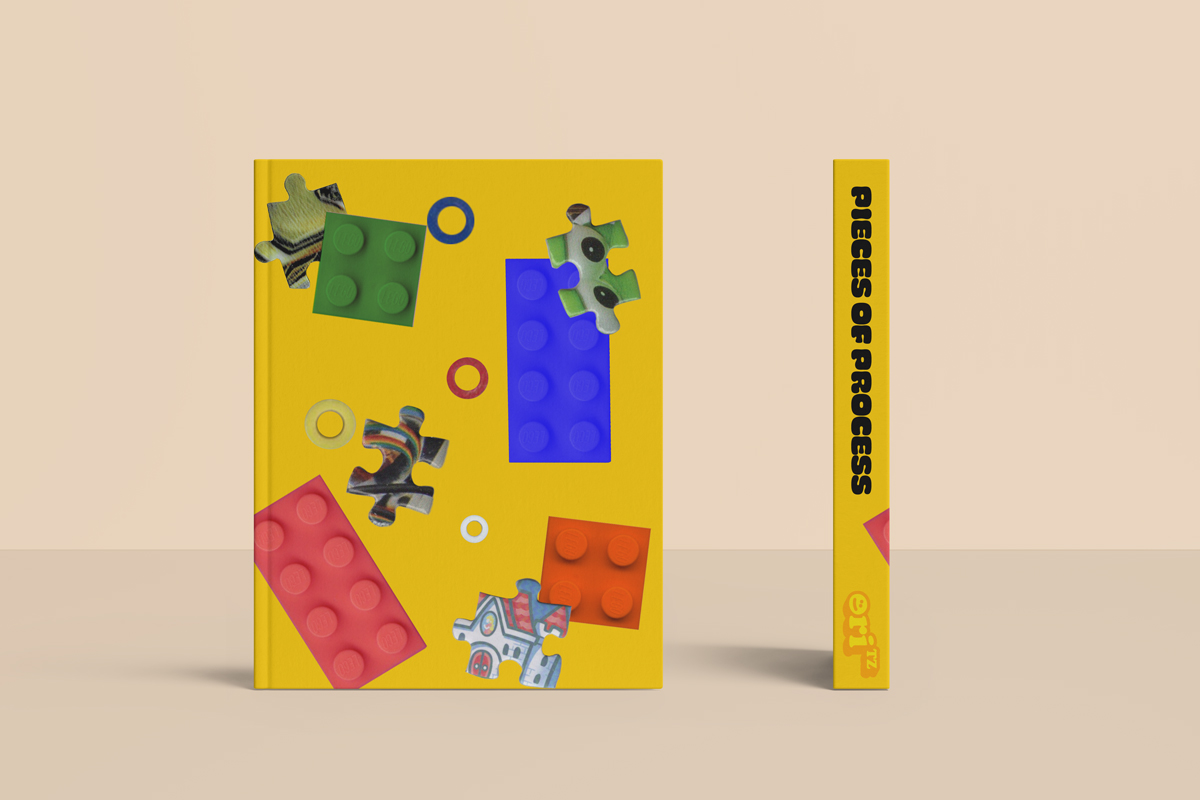
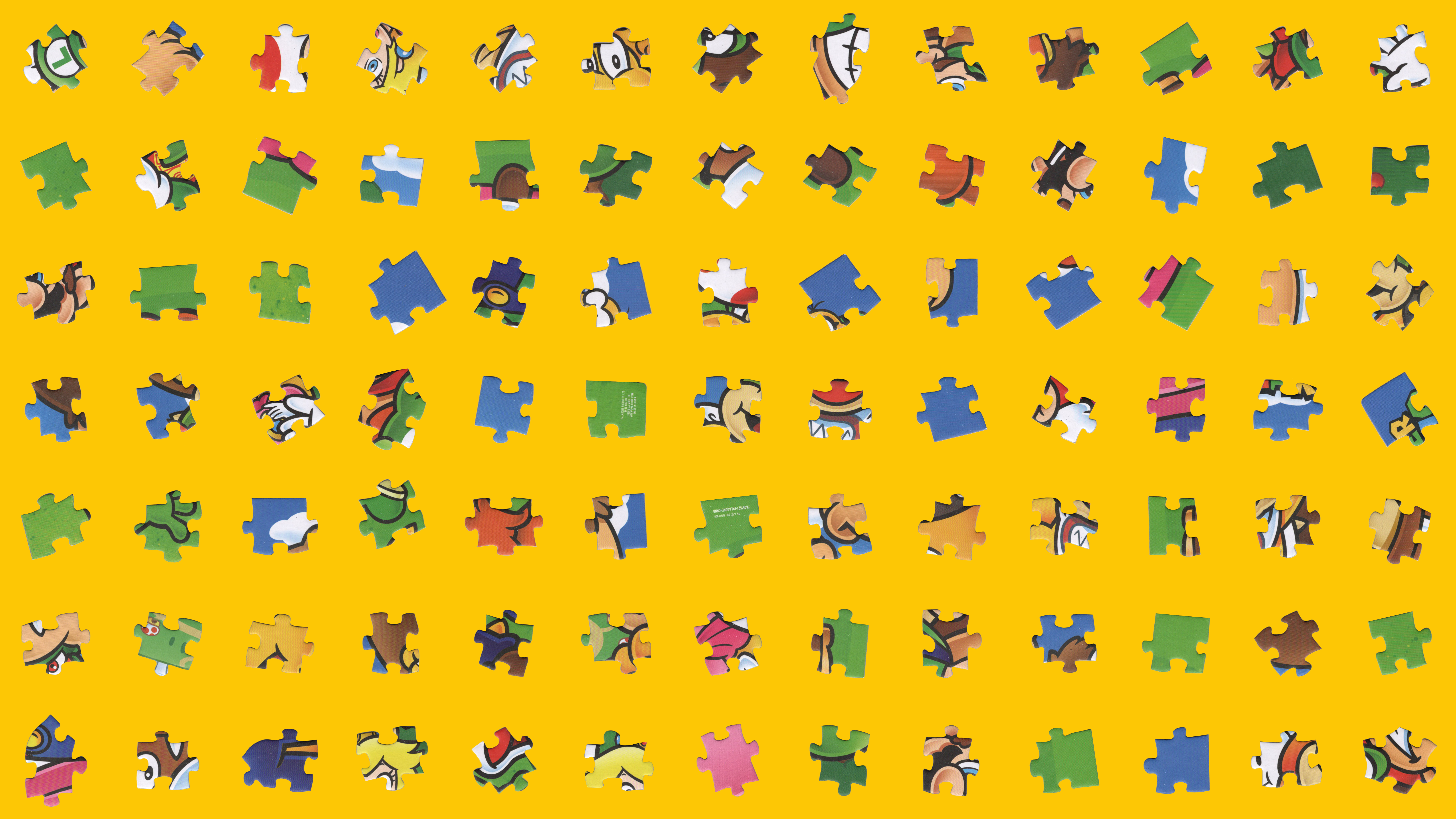
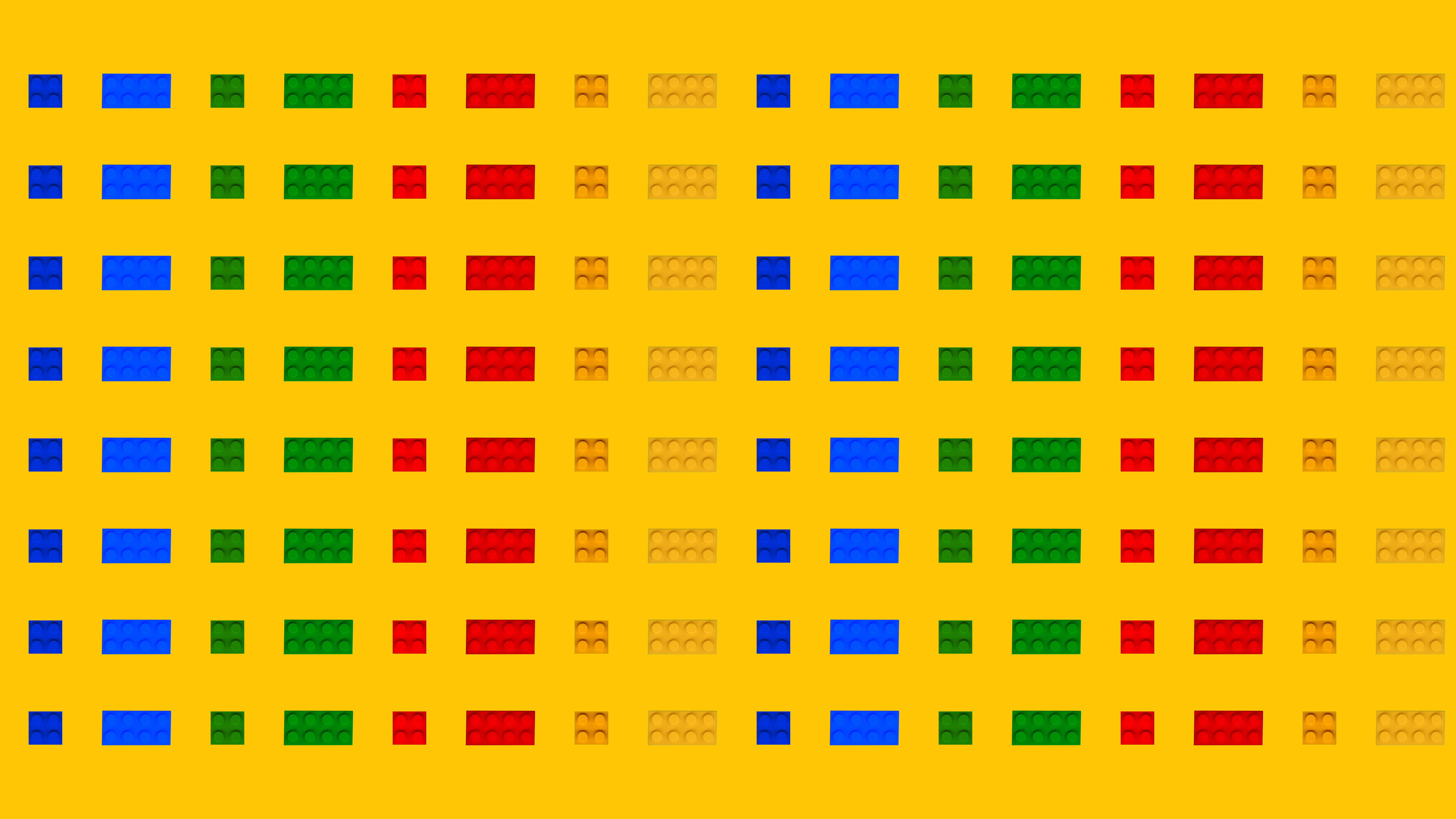
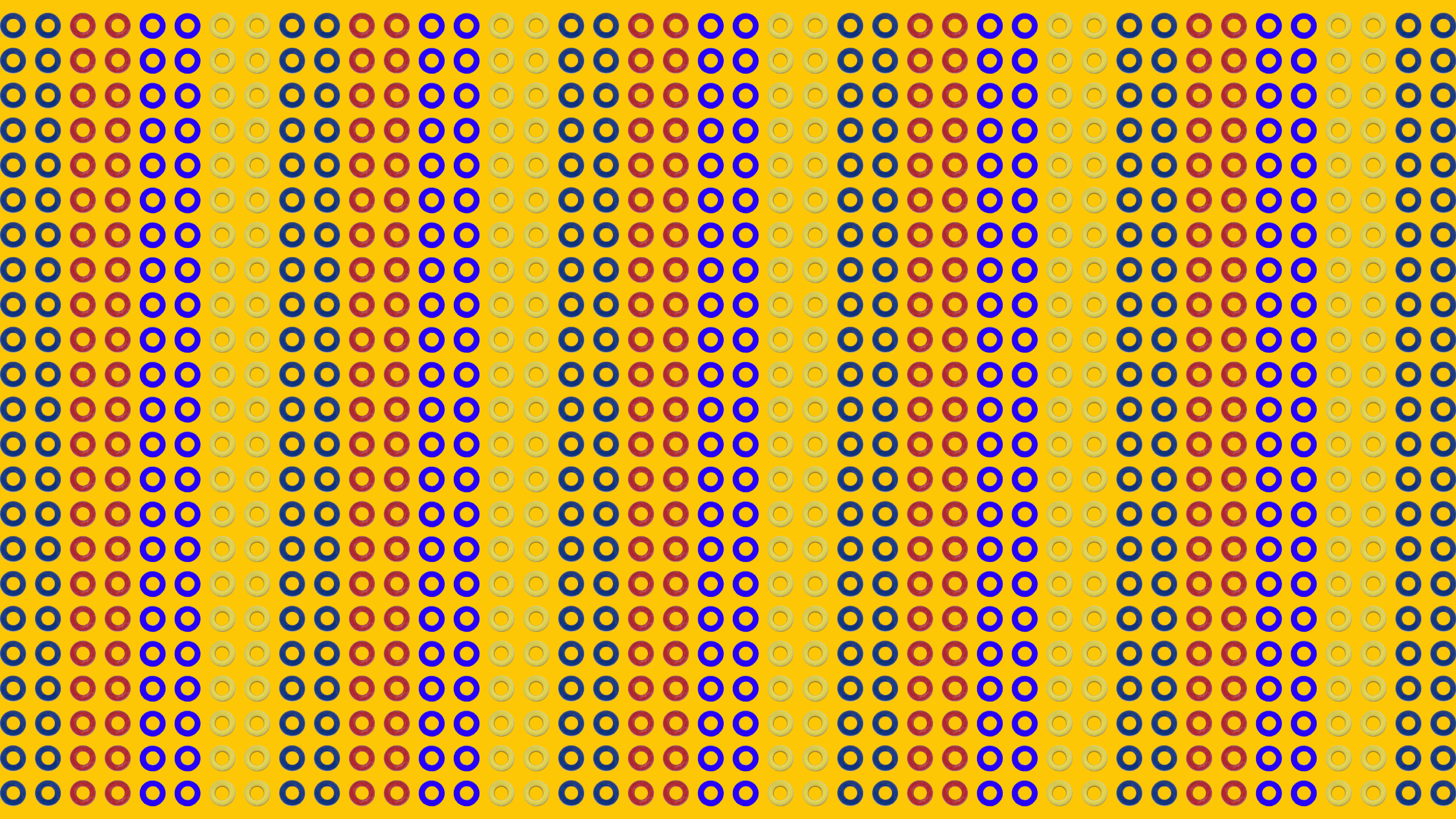
Productivity is defined by today’s world as one’s ability to produce work. We restrict producing to financially or academically-beneficial terms; who can complete the most so that they can make the most back? This colloquial understanding of productivity however, comes from the exploitation of the literal definitions of productivity: “having the quality or power of producing especially in abundance” or “doing or achieving a lot: working hard and getting good results.”
Pieces of Process is a year long exploration of what it means to be productive on your own terms. Over 5000 individually assembled parts are brought together to produce traditionally accepted forms of art and design: catalog, painting, and sculpture. Rather than spend a year creating these works, a year was spent assembling the parts needed to make the work; in the form of puzzles, Legos, and Perler beads. These activities are hobbies, activities we do because we enjoy the process of doing them and gain a sense of personal satisfaction when they are completed. We are not rewarded by employers or professors, but by ourselves.
By producing in abundance through untraditionally “productive” means, Pieces of Process forces one to question their perception of productivity. Who is defining what is productive for you as an individual? Whose values are informing what you consider a good use of your time? But perhaps most importantly: if you value your own happiness, do you apply value to the activities that bring you happiness?
![]()
![]()
![]()
![]()
![]()
![]()
![]()
![]()
![]()
![]()
![]()
![]()
![]()
Pieces of Process is a year long exploration of what it means to be productive on your own terms. Over 5000 individually assembled parts are brought together to produce traditionally accepted forms of art and design: catalog, painting, and sculpture. Rather than spend a year creating these works, a year was spent assembling the parts needed to make the work; in the form of puzzles, Legos, and Perler beads. These activities are hobbies, activities we do because we enjoy the process of doing them and gain a sense of personal satisfaction when they are completed. We are not rewarded by employers or professors, but by ourselves.
By producing in abundance through untraditionally “productive” means, Pieces of Process forces one to question their perception of productivity. Who is defining what is productive for you as an individual? Whose values are informing what you consider a good use of your time? But perhaps most importantly: if you value your own happiness, do you apply value to the activities that bring you happiness?


